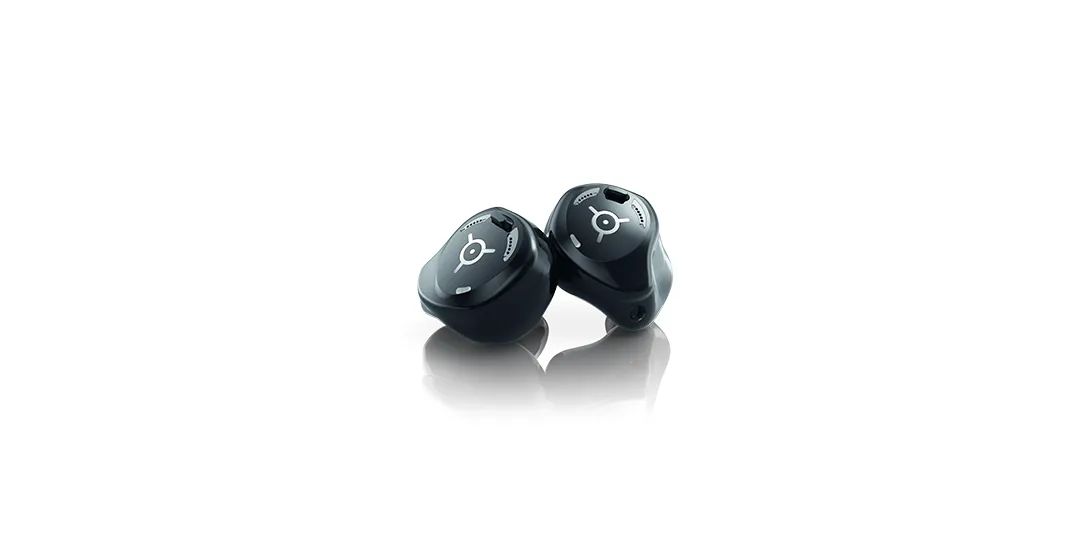6 Everyday Activities that Help your Hearing
_copy.png?branch=web_prod&quality=80&auto=avif&format=webp)
6 Everyday Activities that Help your Hearing
15 min.
Publication Date: August 16, 2019
Prioritizing your health is an important part of aging, and protecting your hearing goes along with that. Here are six activities that can help you keep your hearing in check.
Hearing loss can come on very gradually, and is often something many people choose to put off dealing with. However, taking care of your hearing is an essential part of maintaining a healthy and active lifestyle as you age.
While hearing loss cannot be reversed, there are things you can do to help prevent or delay it from happening. Keep reading for these six everyday activities you can do to help your hearing and overall health.
Solve Puzzles
Your brain is an incredible part of your body that plays a significant role in processing sounds that your ears receive. Just like your muscles that need regular exercise to stay strong, so does your brain.
Solving puzzles is a fun way to keep your brain in top shape and prevent brain degeneration. Some examples of different types of puzzles are crosswords, word searches, and Sudoku. The key is to do these exercises regularly, at least weekly but preferably every day.
Play Cards
Playing cards or board games is also an entertaining way to stay sharp and remain connected to your loved ones. Socializing is especially helpful to help prevent you from becoming isolated. Many people become anxious and depressed, and therefore, less likely to partake in social interactions as their hearing continues to deteriorate. While it might not be an option to be physically present with friends and family at the moment, there are still many “virtual” game apps for your phone or tablet that can keep you connected while we are socially distancing. One example is the app “Words With Friends”, a Scrabble-like crossword game you can play right from your phone or tablet device.
Yoga for Hearing
Yoga offers a multitude of health benefits to body, mind, and soul. Did you know that specific yoga poses can be supportive of your hearing as well? The way that yoga can keep your hearing healthy is by increasing circulation in your brain and your ear. Improved circulation enhances the function of your nerves, and helps detoxify your cells.
The best yoga poses to improve your circulation are the Tree, Cobra, Triangle, and Camel pose. Research has shown that yoga can even reduce the symptoms of tinnitus - a perception of ringing or noise in the ear. Start practicing yoga regularly, and you may find that your anxiety and stress levels also decrease.
Daily Exercise
Daily movement is essential not only for ear health but for achieving optimum health for your body and mind. Staying active each day enhances your wellbeing in so many different ways. You don't have to run a half a marathon every day to reap the health-enhancing benefits of exercise. Choose a physical activity that you enjoy, such as walking, jogging, swimming, jumping, yoga, or perhaps gardening. Any of these activities will help get your blood pumping and improve your circulation. The key is to stick with it and make physical activity a regular part of your daily routine.
Exercise does wonders for blood circulation to your inner ear. The "hearing part" of the inner ear, called cochlea, benefits significantly from the increased blood flow. The cochlea is a vital component of your auditory system, as it converts sound vibrations into nerve impulses.
If you don't like working out, don't worry. Even a relatively small amount of exercise (two times a week) can have a positive effect on hearing loss. Be careful not to exercise with headphones for an extended period of time and avoid loud music. Loud noise is known to cause damage to your ear hairs, and those that you lose, cannot be replaced.
The best way to gauge whether your music is too loud is if people can hear the music playing in your headset.
Practice Meditation
Meditation is an ancient practice with numerous studies supporting its multitude of benefits to your health. Many people are surprised to hear that it can even help prevent or delay age-related hearing loss. When you sit in silence and turn your attention within, you assist your body to regulate your blood pressure, blood flow, and normalize other physiological processes. Meditation has a profound ability to reduce your stress, and by that, diminish its potential negative impact on all your bodily systems.
This simple yet powerful practice encourages deep relaxation and increases blood flow to your brain. When you tune in to the sounds around you, or other ambient sounds, such as birds chirping, you inadvertently work on your hearing. By using sounds to meditate, you will be far more attuned to them throughout your day. Over time, your subconscious mind will assist in helping you notice certain smaller sounds, that you may have missed before. Even though this may be a mental hearing improvement, its effect is still powerful.
Meditating in a park allows you to immerse yourself in a whole host of different sounds. Doing deep breathing exercises as part of your meditation will oxygenate your blood and increase your blood circulation. Alternate focusing your attention into the body and then on all the sounds around you.
Sound Location
Most people don't know, but your ears are not the only ones playing a role in your ability to hear sounds. Your brain too bears a huge responsibility for processing sounds. You can optimize your brain's ability to fulfill its function by training it to focus on noise. Sound location is an effective way to sharpen your brain's ability to locate and interpret sounds. There are several variations of this type of hearing exercise.
- Turn on the music in one room, and walk around while paying close attention to the subtle differences of sounds you hear as you move around. Try your best to understand the lyrics and identify the various instruments in the song. Change the volume occasionally as well as the location where you practice this exercise.
- Turn on a sound source (such as a radio) in one area of a room. Play some music at a soft volume. Turn on another sound source and put that in another area of the same room. Turn up the volume until the music from the two different sound sources creates a noisy environment.
- Ask a family member to read sentences from a book as they move around in the room. Close your eyes, and as you listen carefully, repeat the sentences out loud, and try to figure out where the words are coming from.
You can use some or all of the above activities to improve your hearing. Make sure that you do them regularly to see results. If you are experiencing hearing loss, make sure you get a hearing test done. A hearing test performed by a hearing care specialist is essential to find out the type and severity of your hearing loss.
Getting a hearing aid may be your best option to improve your hearing problems. A hearing aid allows you to hear better, and also helps your brain recognize the sounds you are unable to hear without a hearing aid. You should always seek professional help for your worsening symptoms because untreated hearing loss can negatively impact your mental and physical wellbeing.
To talk to someone from the Connect Hearing team about your hearing loss, call 1.800.563.4327.



